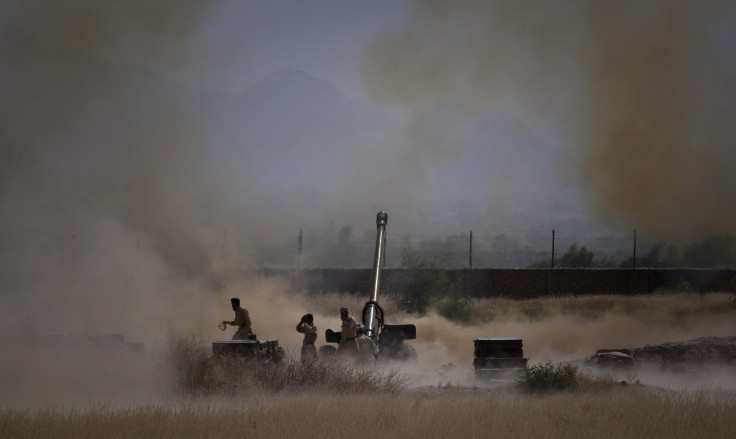US Not Among Nations That Signed Landmark UN Treaty To Regulate Global Arms Trade

The U.S. did not immediately join the 67 nations that signed a landmark U.N. treaty in New York on Monday, to regulate the multi-billion dollar global conventional arms trade to prevent the flow of weapons to human-rights abusers and war criminals.
The U.S., the world’s leading arms exporter, announced it was awaiting all official U.N. translations of the Arms Trade Treaty before signing it, according to a statement issued by U.S. Secretary of State John Kerry.
The treaty “will not undermine the legitimate international trade in conventional weapons, interfere with national sovereignty, or infringe on the rights of American citizens, including our Second Amendment rights” to bear arms, Kerry was quoted as saying by AP.
The treaty prohibits the trade of conventional weapons if such trade breaches arms embargoes or if the weapons could be used in acts of genocide, crimes against humanity, and war crimes or on civilian targets.
Even if the U.S. signs the treaty, the ratification process is expected to face hurdles in the U.S. Senate, mainly due to lobbying from the influential National Rifle Association.
Although an overwhelming majority in the General Assembly voted on April 2 in favor of the treaty, which regulates the international conventional arms trade, estimated to be worth between $60 billion and $85 billion, key industry players including Russia, China, and major importers including India, Egypt and Saudi Arabia abstained from voting at the time.
Merely signing the treaty does not make a state party to it or require a country to implement the provisions of the treaty. To become legally bound by the treaty, the state has to subsequently ratify it. The treaty will take effect 90 days after 50 countries ratify it.
Finland's Foreign Minister Erkki Tuomioja, one of the supporters of the treaty, predicted there will be 50 ratifications “within slightly more than a year -- but the real test is, of course, getting those who still have doubts or who have not made up their minds, to sign on and ratify,” AP reported.
Countries that ratify the treaty are required to establish internal regulations for transfer of weapons and components, and to control arms brokers. The domestic use of weapons in any country does not come under the purview of this treaty.
The seven co-sponsors of the treaty -- Argentina, Australia, Costa Rica, Finland, Japan, Kenya and the UK -- issued a statement saying it was “vital that the treaty comes into force as soon as possible and is effectively implemented.”
© Copyright IBTimes 2024. All rights reserved.












